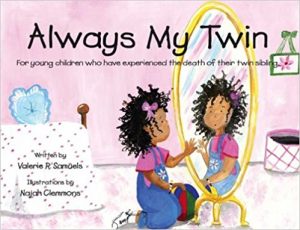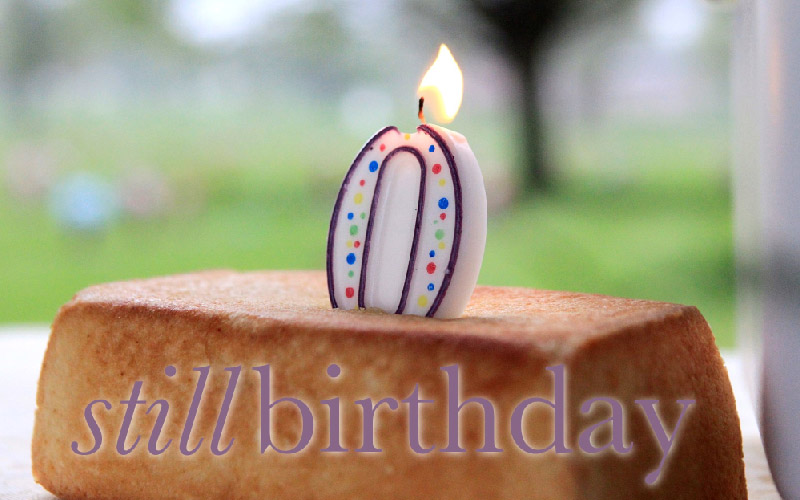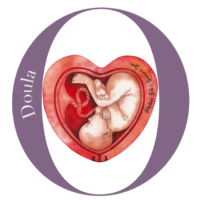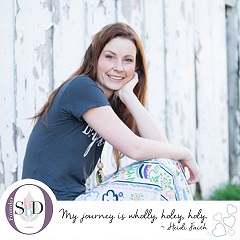
Helpful Information for Adults
- Do know that the things you say to children can become a basis of their performance anxiety and their measure of their interpretation of the worth of their own authentic bereavement response. Do not place platitudes onto children. Do expect bereavement, and this looks different for each age group. Healthy bereavement can include otherwise unpleasant behavior, including tantrums. This is important.
- Do not tell children that they need to chin up and take care of their parents. They will not. They miss their parents as their parents mourn.
- Do not tell children or parents that at least they have each other.
- Children grieve the loss of the sibling they may or may not have known or felt connection with. Children grieve the attention of their parents and grieve the family environment that may never be the same again. This is not a time for children to rise to the occasion with bravery, but instead to learn more of who their sibling was and is in the family, and learn more of their own, the grieving child’s, inherent worth in the family. Behavior changes may be one way of wrestling this out.
Resources for Adults Supporting Grieving Children
- Tips for how to tell your other children
- Know what your other children’s concept of death is, by age
- Are you rearing children while also mourning children? You can share about your journey in our Holding Umbrellas collection.
- When Teachers Face Grief in the Classroom – Dr. Silverman (outside article)
- The Impact of Miscarriage on Our Daughters is an outside article
- Our international Long Term Support section has crisis hotlines, books and more (and our local long term support section has resources, including counseling, in your own community)
- The dynamic of grief in the home between mom, dad and surviving siblings can be a difficult one. While mom might be nurturing her children’s mourning – that is, their outward expressions of their internal grief – dad may be mourning differently, and if these differences are not validated and honored, it can begin to grow a quiet sense of mom and siblings versus dad. For this reason, if possible, dads are encouraged to read a grieving book with their children or engage in their journey in some way. One book I recommend for this is Michael Rosen’s Sad Book. It is about a bereaved father who lost his teenage son, so a couple of pages might not be the perfect fit, but the images, language and tone can be very valuable in this relationship and journey.
- Sibling Support after Pregnancy Loss – founded by Ashleigh Young, SBD, nursing school student
- HK Pinwheel Packs – founded by Holden’s beautiful sisters and mother
One of the reasons I like the pinwheels so much, is that when you give a kiddo a pinwheel, they often like to try to blow it to move.
Most anything that encourages kiddos to blow – pinwheels, bubbles – helps deepen their breathing, and as such, can help regulate their heart rate, and help to offer a calm. Pinwheels also are fun, and even texturally and visually inviting, so they can be a pleasant offering
to mothers and siblings alike, both trying to find stability through devastation.
Pinwheels are joyful. And joyful, is good. ~Heidi Faith
Resources for Children
- The stillbirthday keepsakes section has gifts and other ideas that children and teens may like to have or be a part of.
- The stillbirthday crafting section has tutorials for helpful things to make while talking about their beloved sibling.
- The New Song Center offers grief support specifically to siblings and other children
- Grief Works
- Here is an outside link with additional information for children
- Special farewell words and music (from our site)
- Comfort Zone is a free childrens camp that explores grief
By Country
Resources for Grieving Teens
- GriefSpeak Resources
- National Students of AMF
- 100 Practical Ideas (book for teens)
- CL< Resources
Resources for Adults Supporting Grieving Teens
Children & Teens Can Encourage One Another
Stillbirthday holds the stories and experiences of children and teens. If you have a special drawing or other artwork, or you have a poem or would like to journal your experience and feelings, we’d be honored to hold your feelings and validate you here. Please speak with an adult about sharing your story, where it will be held at the “Siblings” section of stories.
Books for Children
- The Purple Balloon – Chris Ranschka (recommended)
- A Letter from Heaven – Steve Butler
- We Do Remember You – Steve Butler
- Always My Twin – Valerie R. Samuels

- Center for Loss & Life Transition
- Raising Grieving Children – Dr. Silverman (Psychology Today – blog)
- Am I Still a Sister? – Alicia Sims
- Part of Me Died Too – Virginia Fry (activity book for kids of all ages)
- Healing Journey for Kids – a military kids coloring and activity book
- Our Baby Died – Dr. Jane Worland
- My Baby Big Sister – Cathy Blanford
- Something Happened – Cathy Blanford
- I Miss You: A First Look at Death – Pat Thomas
- We Were Gonna Have a Baby, but We Had an Angel Instead – Pat Schwiebert
- Someone Came Before You – Pat Schwiebert
- Isabelle’s Dream: A Story and Activity Book – Betsy Arenella
- Gentle Willow – Joyce C. Mills
- Granddad’s Prayers for the Earth – Douglas Wood
- The Dragonfly Door – John Adams
- Helping Children Grieve – Theresia Huntley
- About Dying: An Open Family Book for Parents & Children – Sara Stein
- The Fall of Freddie the Leaf – Leo Buscaglia
- Last Week my Brother Anthony Died – Martha Whitmore
- Losing Someone You Love: When a Brother or Sister Dies – Elizabeth Richter
- The Mountains of Tibet – Gerstein (belief in reincarnation)
- The Sky Goes on Forever – Molly Macgregor (activities)
- The Tenth Good Thing about Barney – Judith Viorst
- Duck, Death and the Tulip – Wolf Erlbruch
- The Invisible String is great with a craft – cut construction paper into a heart, and allow the child to write or draw the people and things on it that are important to him or her. Tie fishing line into a loop to hang the heart.














